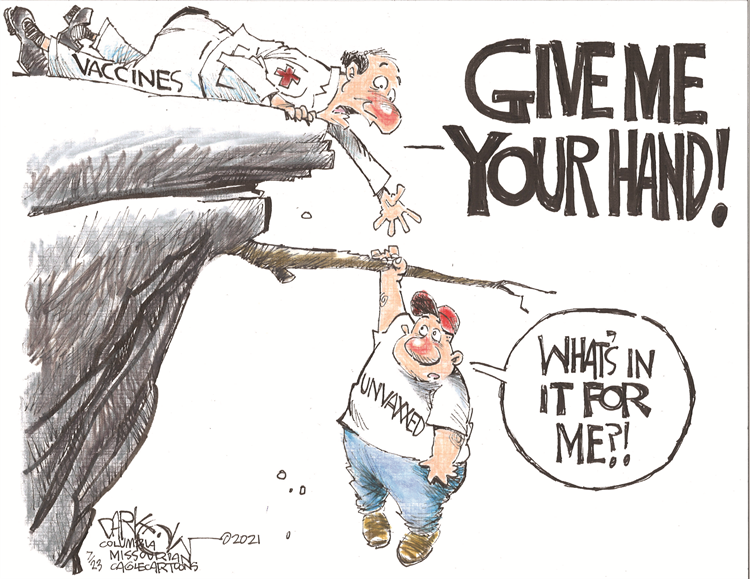Medicine has been too successful
People have lost their fear of disease. It only took about two generations without major deadly infections. That comes as a surprise to me. I thought people understood cause and effect. But, no. Apparently, if you’re not in immediate and personal danger of dying, it’s Somebody Else’s Problem. And a SEP field, as Douglas Adams astutely pointed out, is the only proven way to make anything invisible.
Years ago, 1990s?, I read an article about attitudes to vaccination. In places like Bangladesh, where they actually had to contend with actual disease, people were overwhelmingly in favor of it. More than 85% of the respondents were incredulous you could have any other attitude. (This was before extremists started spreading paranoia about Western contamination.) It was only in well-to-do parts of the wealthier countries that people had the luxury of fantasizing about what vaccines would do to their precious bodily fluids.
The loss of healthy fear towards something that can kill you has made too many people incapable of understanding where a lethal threat fits into the scheme of things. You see sentences like, “But the extent of the European lurch toward mandatory measures has also prompted unease and questioning over loss of freedom.”
The mind reels. Do they not understand that your freedom ends where your threat to my life begins?
(Rights, unlike people, are not all equal. Some depend on others. Some are a precondition for everything else. There is not one single freedom that can be enjoyed if you’re dead. Of course it’s more complicated than one right always being first. The link goes on about the intricacies.)

Public health measures to prevent the spread of disease take precedence over people’s convenience every single time.
Mask wearing, social distancing, and temporary lockdowns are all merely inconvenient. There is no, absolutely no, rights-based argument to make against them.
Contact tracing does raise privacy issues. But there again: you can’t enjoy privacy when you’re dead. Privacy is a secondary consideration. It must be respected to the extent possible while the primary public health priorities are achieved. For instance, we’re horrified the government could be using our cell phones for location data to track covid contacts, as they did in South Korea. That is nonsense. Location tracking to save your life is a Good Thing. It should be done from the start to the end of a pandemic. After that the data should be expunged.
What should not be done is using that data to sell us fast food, or to store it forever to target political ads at us, or to deny us jobs based on some AI bullshit model of who we are based on where we’ve been. And yet, we put up calmly with the latter while throwing fits about lifesaving temporary public health tracking. Commercial tracking, which should be illegal, has made us allergic to lifesaving tracking. It’s insane. And I suspect it’s all because we feel powerless against corporations but not the government.
Vaccination is the third major public health measure, and it does intersect with the basic right to control your own body. When two foundational rights conflict — the right not to be harmed and the right to control your own body — then the scale of the harm on each side is important.
Vaccines can cause nanoscale harm. Things like sore arms, a day of lethargy, or even super-rare blood clots which can be effectively dealt with if doctors know they should look for that. Compared to the megascale harm from disease — death, long term disability, sickness for millions — there is no contest at all . The greatest good of the greatest number is the right criterion to apply when the difference is so stark. Vaccine mandates are justified to bring the cost of non-vaccination home to anti-vaxxers. As are mandates that limit them from any place where they could potentially spread the disease they’ve refused to prevent.
There is zero place for any “unease and questioning over the loss of freedom.” [Ed. note: idiots.]


